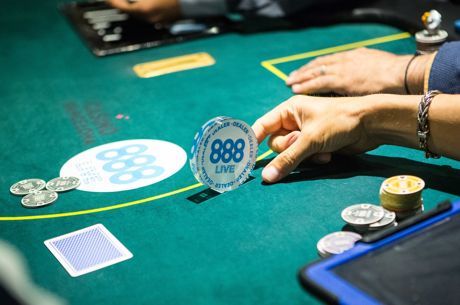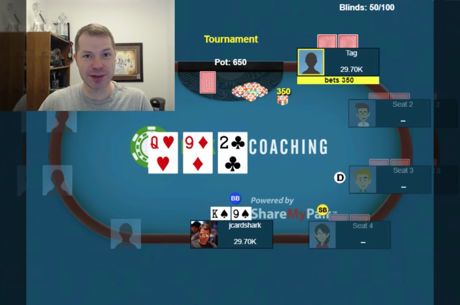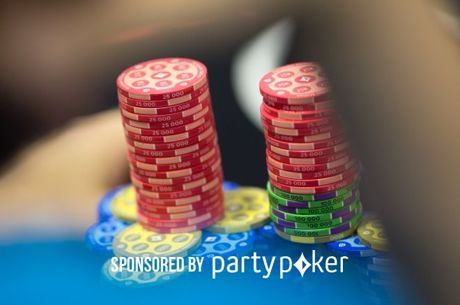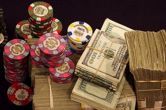Tommy Angelo Presents: Folding
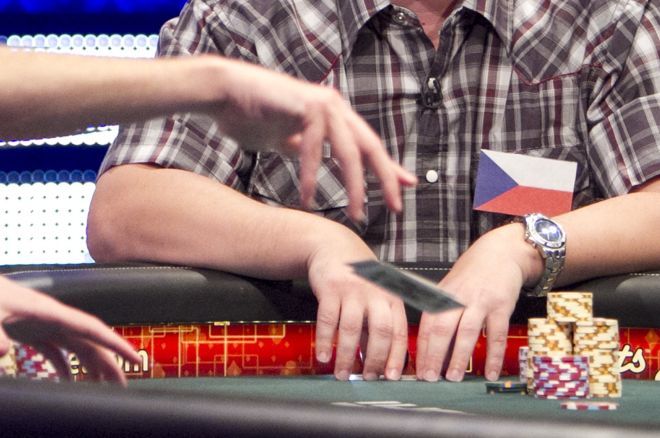
Ed. note: Poker coach, author, and player Tommy Angelo shares with us an earlier article of his which shares a notable revelation learned during his playing career �� the many rewards, financial and otherwise, that come from learning how to fold.
I played poker for 10 years before I discovered folding in 1984. That's when I met Bobby. He had a big belly, a big beard, and a big laugh. Bobby was like Santa Claus, minus the giving. He just kept throwing his hand away, and he didn't seem to mind. Then he would carry the money away, and the players didn't seem to mind.
So I started folding more often, to see what would happen. I folded before the flop with ten-nine a couple times. I folded queen-eight suited. I folded an ace when somebody raised. It was so new, so exciting. I was high from it, like an explorer. I kept adding more hands to not play, trying to get my starting-hand folding rate up with Bobby's. But it didn't stop there. Oh no. Before long I got hooked on the hard stuff, like folding on the river when I had a good hand.
Soon I went to Vegas. After a week in the desert, I felt like Charles Darwin must have felt on the Galapagos Islands, having traveled to an isolated land, where he found strange new ecosystems populated by bizarre species. What I discovered on Las Vegas Island was that in the poker ecosystem, at the top of the food chain, sat the folders.
I need to stop here and tell you exactly the kind of folding I mean. I'm talking about folding that is done often, and conspicuously, and audaciously, and without a fuss.
Every now and then in the Vegas games, a non-folder would say something to a folder, sometimes friendly sometimes not, about playing so tight. I couldn't get over how comfortable the folders were, with all of it, with the folding, with the comments, and they'd just sit there, behind their tall stacks and long smiles, and muck, one more time.
I was like, okay, I see how this works now. It's like a club. The folders club. Well, whatever it was, I wanted in.
After my first taste of big-time folding, I felt that if I could get really good at it, I could quit my job. So I made folding my holy grail, my quest, my mountain to climb. I could see the mountain. I could see my path. I looked at the ground in front of me, and I took a step.
By 1990 I was folding enough to support my food and rent habit. This freed up lots of time for lots more folding. Before long I got so good at folding that I could afford to get stupid at first one flavor of gambling then another and another. My tether line to solvency was always the folding. Anytime I was low on money, all I had to do was stop betting and stop eating and get back to the folding.
Eventually I outpaced the gamble demon and the cigarette demon and the tilt demon and several others I met along the way. My path became a gentle incline that coaxed me up to a sunny ledge where I stopped, and sat, and I looked around in wonder, for I could see the top of the mountain far away and high above, and I could see the bottom, waiting for me, should I neglect my folding.
When I play now, one of the things I don't do during the opening drive of the game is wager much. I like to get to the folding right away. My ideal session starts with a sip of coffee, then somebody raises and I fold from the big blind, then another little sip before I fold my small blind, then I take as big a sip as the coffee's temperature will allow, and I sit up straight, and I get ready to play my button, and I exhale consciously, and most likely fold.
Which brings me to the hand that got me to writing about my folding fetish in the first place.
The game was live $80/160 limit hold'em. It was my first hand of the session. I was in the big blind with ace-ten offsuit and no hearts. One player limped, the small blind folded, and I checked. We were heads-up going into the flop with me first.
The flop came ace, ace, nine, with two hearts.
I checked. He checked.
The turn was the eight of hearts.
I checked. He checked.
The river was the seven of hearts, making the final board A-A-9, 8, 7, with four hearts.
I checked. He bet. And I folded.
Of course no one at the table had any idea I had a hand like that. After all, all that happened was limp, check �� check, check �� check, check �� check, bet, fold. If any of my opponents were to draw a conclusion from what they had seen, it would not be that I had folded a good hand. It would be that I had chosen to not bluff, three times, with a bad one. And that's why I fold the way I do, with a quiet mind and a silent body, so nobody knows what I had.
Sometimes folding makes me feel like a puppet master. Like when I open-raise from the cutoff with not much, and the button calls and the blinds fold, and it's heads-up with me first, and I miss the flop, and I check and he bets and I fold. Or if I raise before the flop and someone reraises behind me and everyone else is out and I call and the flop comes and I check and he bets and I fold. With punts like these, I make money twice. Once by immediately ending my worst situations. Twice by making it correct, in their worlds, for the bluffing types to bluff when I check, and for the folding types to fold when I bet. And all of a sudden, I can't lose. I love folding.

World-class coach and author Tommy Angelo is now offering poker pain relief to everyone. You can schedule a call to talk to Tommy about bad betting, bad quitting, bad tempers, or whatever else is hurting your game. Just go to tommyangelo.com. Angelo's first book, Elements of Poker, was called "the seminal poker text of the 21st century" by The London Times, and it has revolutionized the way serious players approach the game.

